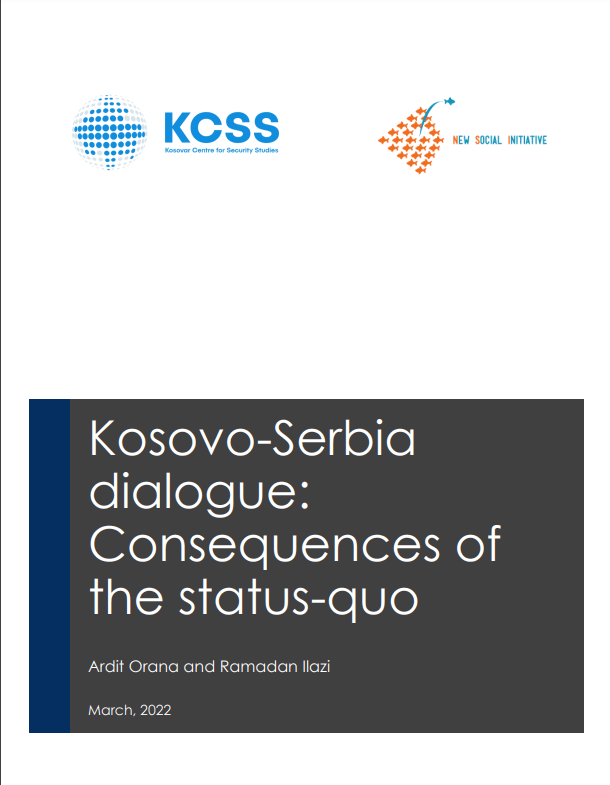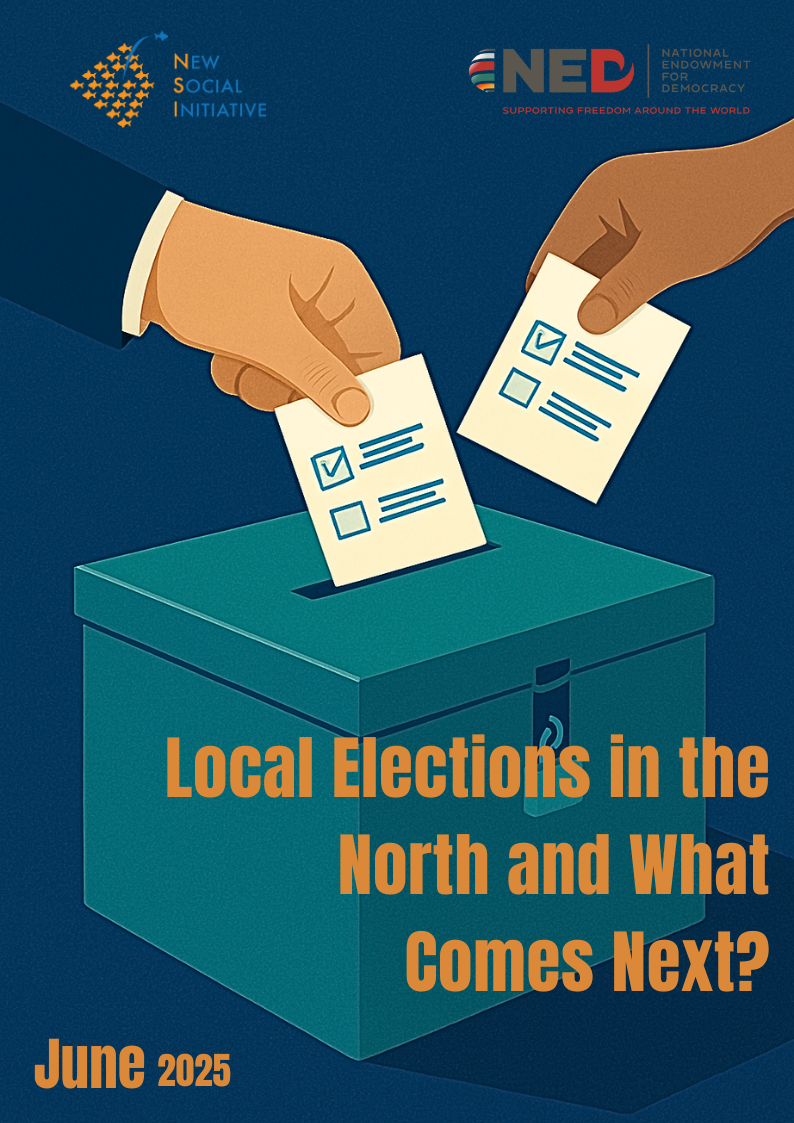Kosovo-Serbia dialogue: Consequences of the status-quo
The lack of normalization of relations between Kosovo and Serbia is considered to be one of the main threats to regional stability in the Western Balkans. The European Union has been facilitating a dialogue for normalization of relations between the two parties since 2011, and marked a significant success in 2013 when “The First Agreement of Principles Governing the Normalization of Relations”1 was initialed between the Prime Ministers of Kosovo and Serbia, which included the establishment of an Association/Community of Serb majority municipalities in Kosovo (A/CSM); integrating security related structures in the northern municipalities into the Kosovo Police force, integrating judicial authorities into the Kosovo legal framework, and organizing the municipal elections in four northern municipalities, etc.
The elements concerning the establishment of the A/CSM were further detailed in the 2015 “Agreement on the General Principles/Main Elements of ASM/CSM”. Since 2011, Kosovo and Serbia reached around 38 agreements, and a good number of them have been successfully implemented.2 A major point of contention in the dialogue has been the establishment Association/Community of Serb majority municipalities in Kosovo. Over a decade since the normalization of relations dialogue started in 2011, the hopes for the process to conclude with a comprehensive and legally binding agreement anytime soon are dim. The meetings and agreements have become uncommon, while both parties have increased public accusations against each other. The least integration efforts were finalized in October 2017 when the Basic Court and Prosecution of Mitrovica became fully functional.
Despite challenges, the Brussels Dialogue managed to facilitate a temporary solution in 2021 to the dispute between Kosovo and Serbia on vehicle license plates that ended heightened tensions between the two parties. However, this was rather the exception than the rule for the perception that the dialogue is in a limbo, largely since 2016. In early 2022, the Kosovar Centre for Security Studies (KCSS) and New Social Initiative (NSI), supported by the Embassy of Canada to Croatia and Kosovo, convened a group of civil society activists, experts, academics, journalists, and opinion makers to discuss the prospects for a breakthrough in the current status-quo between Kosovo and Serbia. To understand the perspectives of Kosovo Albanians, Kosovo Serbs and Serbians, the discussion was structured along three thematic clusters: the political, social, and economic consequences of the status-quo between Kosovo and Serbia.
The Chatham house discussion, aimed to understand the underlying perspectives that drive public opinion in Kosovo and Serbia on the dialogue and the consequences on the relations between Kosovo and Serbia. In addition to the forum discussion, KCSS and NSI jointly hosted a high-level conference on march 29, on the consequences of the status-quo of the process for normalization of relations between Kosovo and Serbia, which included senior political representatives from the main political parties in Kosovo, including opposition. The discussion provided an important window into the thinking of the political leaders on the challenges and way forward for the Brussels dialogue.
The aim of this report is to provide an overview of the main arguments that have been developed in the discussions of these events and add nuance to the debate on the future trajectories of the dialogue between Kosovo and Serbia. The report is structured in three main parts. First, it examines the political consequences that have surfaced because of the status-quo and examines the effects the Russian invasion of Ukraine has had on the prospects for the European Integration of the Western Balkans (most notably, Kosovo and Serbia). Secondly, it addresses the social consequences through an overview of the diverging perspectives on the Association of Serb Municipalities (ASM). Lastly, it examines the effects the status-quo has had on cross-border economic cooperation and integration in the Western Balkans.
Opinions expressed in this report are of the authors and do not necessarily reflect the positions and opinions of the Embassy of Canada to Croatia and Kosovo





